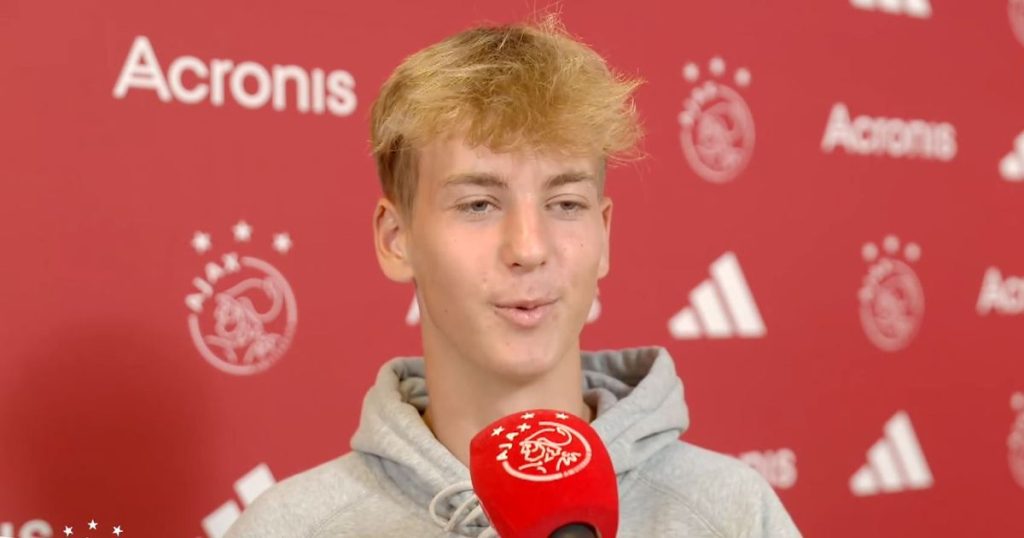Manchester United failed to secure the signing of Danish wonderkid Lasse Abildgaard last summer, as he chose to join Ajax instead. The 17-year-old winger had trials with several top European clubs but ultimately decided that Ajax would be the best place for his development. Abildgaard cited the structure and atmosphere at Ajax as the reasons for his decision, praising the club for its facilities and training sessions. He is known for his creativity on the pitch, often cutting inside from the right-wing position to shoot or make passes. Abildgaard signed a three-year contract with Ajax in July, following in the footsteps of former Ajax striker Kasper Dolberg, who also hails from the same village in Denmark.
The young winger mentioned Manchester United midfielder Christian Eriksen, along with other Danish players who have previously played for Ajax, as his role models. Abildgaard’s decision to join Ajax over Manchester United is not the first time the English club has missed out on promising talents. Another example is Lucas Bergvall, who signed with Tottenham after being on trial at United, Juventus, and Bayern Munich. United’s failure to secure these young talents highlights the challenges they face in attracting players, especially with competition from other top clubs in Europe. Despite the club’s stature and history, United have struggled to compete with other clubs in recent years when it comes to signing young talents.
Abildgaard’s choice to join Ajax emphasizes the importance of finding the right environment for young players to develop and thrive. Ajax’s renowned youth academy and emphasis on developing young talents have made it an attractive destination for many aspiring players. Abildgaard’s decision reflects a trend among young players to prioritize clubs that offer better development opportunities over clubs with a big name but less focus on youth development. His comments about Ajax’s training sessions, facilities, and structure suggest that he chose Ajax because he believed it would provide the ideal platform for his growth as a player.
Manchester United’s failure to secure the signings of Abildgaard and other promising talents highlights the need for the club to reassess its approach to recruitment and youth development. With competition from other top clubs and the changing landscape of European football, United must adapt to the evolving demands of young players. The club’s history and reputation may no longer be enough to attract top talents, as demonstrated by Abildgaard’s decision to join Ajax over United. Moving forward, United will need to prioritize creating a conducive environment for young talents to thrive and ensure that they have the necessary resources to develop their potential.
In conclusion, Lasse Abildgaard’s decision to join Ajax over Manchester United underscores the challenges facing the English club in attracting top young talents. The competition from other European clubs, as well as the changing priorities of young players, pose significant obstacles for United in their recruitment efforts. Abildgaard’s choice highlights the importance of finding the right environment for young players to develop and succeed. United will need to adapt their approach to recruitment and youth development to remain competitive in the ever-changing landscape of European football. Only by creating the ideal conditions for young talents to thrive can United hope to reclaim their status as one of the top clubs in the world.


